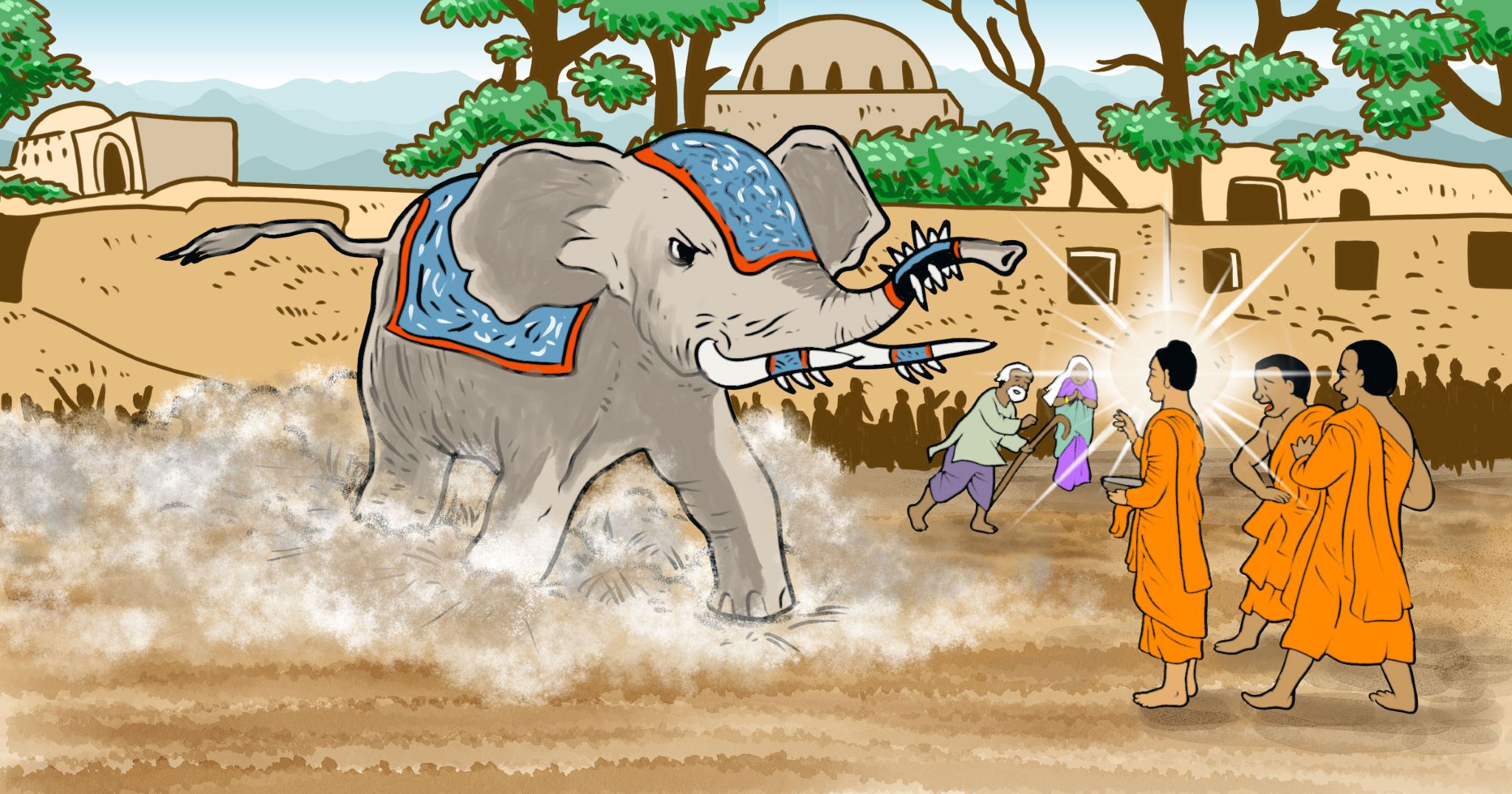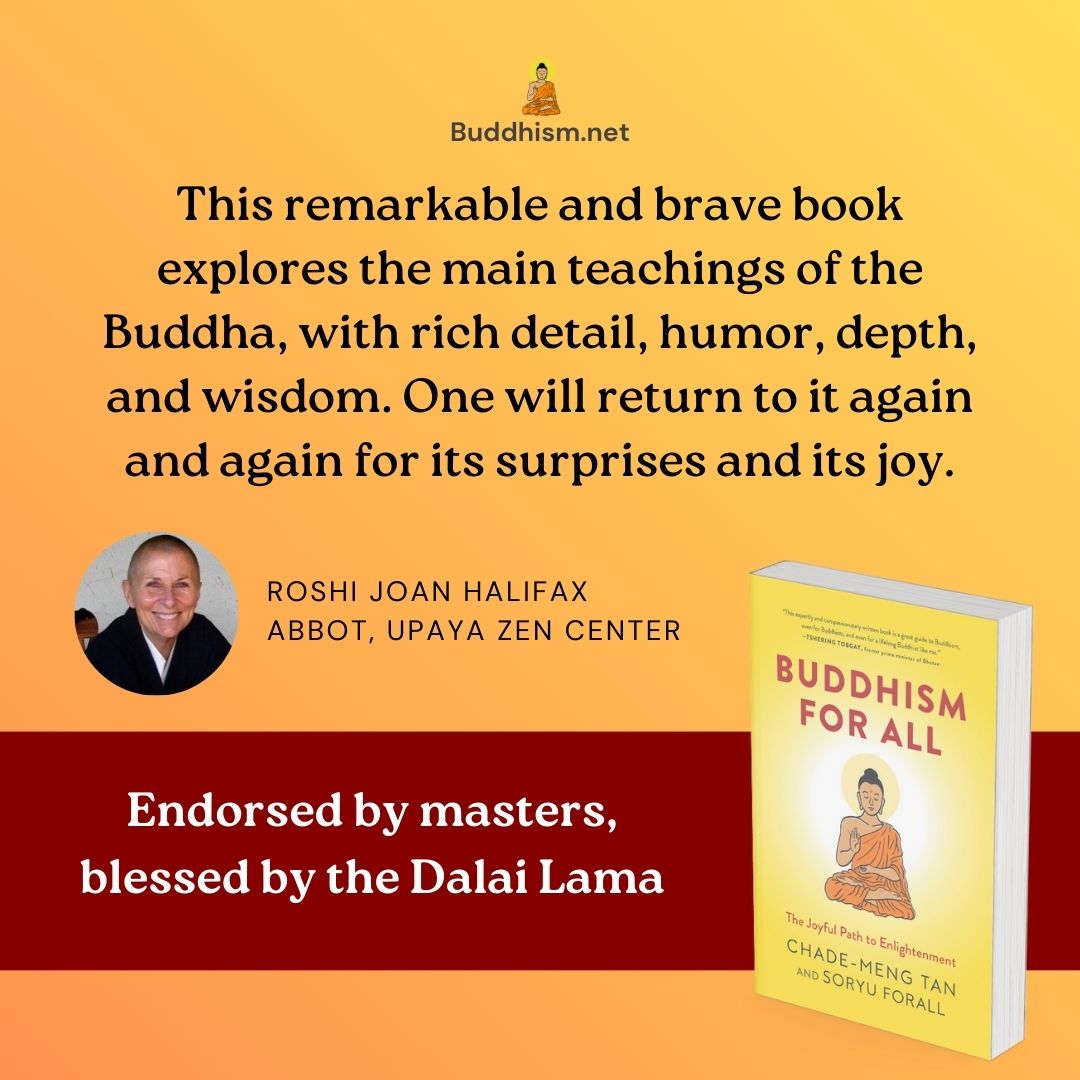
(Context: Why Buddhist monastics are not allowed to perform miracles in public.)
Devadatta was a first cousin of the Buddha who became his disciple. He was a talented meditator who developed great psychic powers.[1] He used his powers to gain fame, power and privilege. He appeared in front of Ajātasattu, who was then the Crown Prince of Magadha, and showed off his psychic powers. Ajātasattu was so impressed he took Devadatta as his teacher and showered him with a luxurious lifestyle. As Devadatta indulged in luxury and privilege, his psychic powers started to wane, but his ambition started to grow. Now he wanted to take over the entire Buddhist Sangha.
Alongside Devadatta’s blind ambition was his lifelong jealousy against the Buddha that went back to their childhood. When they were children, Siddhattha (the future Buddha) was the golden child, the future king, the nice, talented kid everybody loved, while Devadatta was “that other kid”. Once, young Devadatta shot a bird, and young Siddhattha took it away to nurse it. They fought over the bird. Finally, they went to a guru for mediation, and the guru said, “Devadatta wants to take the bird’s life, while Siddhattha wants to save its life. Therefore, the bird should belong to Siddhattha.” Devadatta resented Siddhattha since. After Siddhattha became the Buddha, Devadatta joined his order, learned to meditate and developed psychic powers, but his jealousy of his better cousin never went away.
At a large gathering of monks where the king was also in attendance, Devadatta said to the Buddha, “You are now old, you should retire and live a life abiding in ease, and let me lead the Sangha.” The Buddha replied with an unusually harsh rebuke, “I would not hand over the Sangha even to Sāriputta and Moggallāna. How then could I hand it over to you, a wretched one to spit out like spittle?” Devadatta bowed to him and left, but inside, he was so furious he started hatching murder plots.
When Devadatta returned to the palace, he incited Prince Ajātasattu to join him in a murder pact, “You kill your father so you would be king, and I kill the Buddha so I will be the new Buddha.” Ajātasattu then attempted to assassinate his own father, the good king Bimbisāra. Ajātasattu failed, got caught and was brought in front of the king. The good king asked, “Why do you want to kill me, my son?” “Because I want your kingdom.” “Why didn’t you just say so, I’d give it to you.” With that, the good king Bimbisāra abdicated and gave Ajātasattu the throne. Ajātasattu became king, and then eventually murdered his father anyway.
Devadatta made three attempts to murder the Buddha. First, he had the now king Ajātasattu give him a squad of men to command. He ordered them to kill the Buddha. As they approached him sitting under a tree, they were so awed by him they greeted him, he spoke to them, and by the time he was done, they all became his lay followers. Next, the Buddha was taking a walk in the shade of Mount Vulture Peak. Devadatta climbed to the top of Vulture Peak and hurled a large rock at him (I imagine he still had some psychic powers, and could still do that Jedi rock moving thing). He missed and a fragment of the rock ended up hurting one of the Buddha’s toes, drawing blood. The third murder attempt was a big deal because it was attempted in the city in broad daylight.
In the city of Rājagaha, there was a fierce war elephant called Nālāgiri who had been trained to kill people. The elephant was royal property, so Devadatta went to the mahouts to offer them a big reward and promotion by the king if they killed the Buddha. One day, while the Buddha was walking along the city’s carriage-road, the mahouts set Nālāgiri loose to charge at the Buddha. There must have been some distance between them, because people actually had time to react. The Buddha decided to stand still while the elephant charged at him. The townsfolk started climbing onto the roofs to watch the spectacle. As the elephant charged, the Buddha just stood there and infused it with loving-kindness. As the elephant got close, it stopped charging, sat down beside the Buddha and let him stroke its forehead. Eventually, the elephant walked back to its own pen. The citizens of Rājagaha were beside themselves. There was a big brouhaha, and people around town sang:
“Some are tamed by stick, by goads and whips.
The elephant was tamed by the great seer
without a stick, without a weapon.”
The people of Rājagaha eventually learned that Devadatta was behind this, so he became widely despised in the city, and he eventually lost his royal patronage. He had one more trick up his sleeves: to break up the Sangha. With help from his co-conspirator, the monk Kokālika, he caused a schism and attracted five hundred monks to his breakaway faction. Sāriputta and Moggallāna went to visit them. Devadatta thought they were there to join him, so he invited them to speak to the monks while he napped. When he woke up, he discovered that all of those monks except Kokālika had returned to the Buddha. He vomited blood. He was never heard from again.
If you wonder what happened to the new king Ajātasattu, he had a change of heart. Right after he gave the final order to execute his father, his own first son was born. Becoming a father, he experienced what it was like to love one’s own son totally and unconditionally. He suddenly realized how his father must have felt for him. He immediately ordered a messenger to rush out to cancel his previous order to execute his father, but it was too late, his father was already dead. Ajātasattu was then wracked with profound remorse and later, paranoia. Luckily for him, he eventually ended up going to the Buddha for instruction and became his follower.
Activities:
- Reflect on this post with Angela:
- Reflect on your own life. Do you encounter difficult people in your workplace or daily life? Do you face people with lethal intentions trying to kill you? (unlikely, I think!)
- Reflect on how we can learn to face anything with mindfulness, wisdom and compassion. Just like how the Buddha tamed the wild elephant with his wisdom, loving-kindness and compassion, we can also radiate profound and immeasurable loving-kindness to others.
- Can you see how your life will change, once you do that? Try it and know for yourself. The beauty and depth of Buddhism is that you can directly apply, see, and realize all of the truths for yourself, in your life, right now.
- What stood out to you from this article? Why?
References:
[1] His story is in Theravadin Vinaya Khandhaka 17.
Featured image by Colin Goh.

